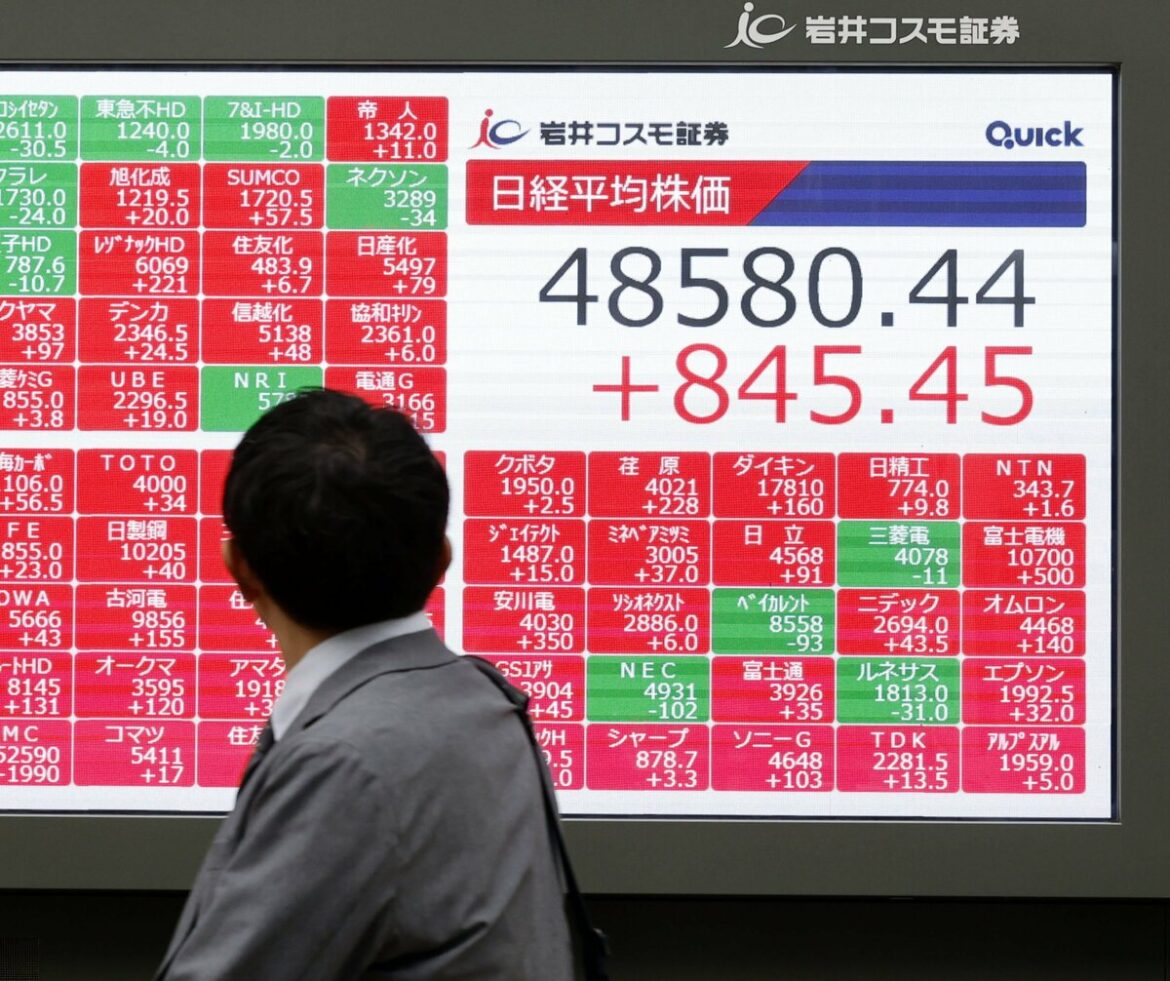TOKYO – Japan’ key stock indexes ended at all-time highs on Thursday, driven by firm technology issues amid hopes for robust artificial intelligence-related demand.
The 225-issue Nikkei Stock Average rose 845.45 points, or 1.77 percent, from Wednesday to close at 48,580.44, finishing above the 48,000 line for the first time. The broader Topix index gained 22.11 points, or 0.68 percent, to 3,257.77, ending at a record high for a fourth straight day.
On the top-tier Prime Market, the main gainers were information and communication, securities house and nonferrous metal issues.
The U.S. dollar remained firm mostly in the upper 152 yen range in Tokyo amid fading expectations of an imminent interest rate hike by the Bank of Japan and growing concerns over the country’s deteriorating fiscal health, dealers said.
At 5 p.m., the dollar fetched 153.06-07 yen compared with 152.63-73 yen in New York and 152.56-58 yen in Tokyo at 5 p.m. Wednesday.
The euro was quoted at $1.1610-1611 and 177.71-75 yen against $1.1625-1635 and 177.53-63 yen in New York and $1.1630-1632 and 177.43-47 yen in Tokyo late Wednesday afternoon.
The yield on the benchmark 10-year Japanese government bond ended at 1.690 percent, down 0.005 percentage point from Wednesday’s close, as the debt was bought back following the previous day’s sell-off.
Stocks climbed sharply as heavyweight semiconductor and AI-related shares attracted buying after the U.S. Nasdaq index closed at a record high overnight.
Softbank Group surged 11.4 percent to 22,965 yen, after announcing Wednesday the technology and investment conglomerate will acquire the robotics business of Swiss industrial automation company ABB Ltd. to beef up its robotics business by utilizing AI technology.
The market was also supported by some exporter shares on a weaker yen, while stocks that had risen recently came under pressure from investors locking in gains, analysts said.
Meanwhile, the market was unaffected by growing political uncertainty, with an extraordinary parliament session to elect Japan’s next prime minister likely to be delayed to Oct. 20 at the earliest from Oct. 15, the previously planned date, after lawmaker Sanae Takaichi became the new leader of the ruling Liberal Democratic Party.
“Shares that are little affected by political developments continued to be bought,” said Maki Sawada, a strategist in the Investment Content Department of Nomura Securities Co.
“Given the ongoing capital investment (in the AI-related field), the market is expected to maintain its upward momentum and a sharp decline seems unlikely,” she added.


AloJapan.com